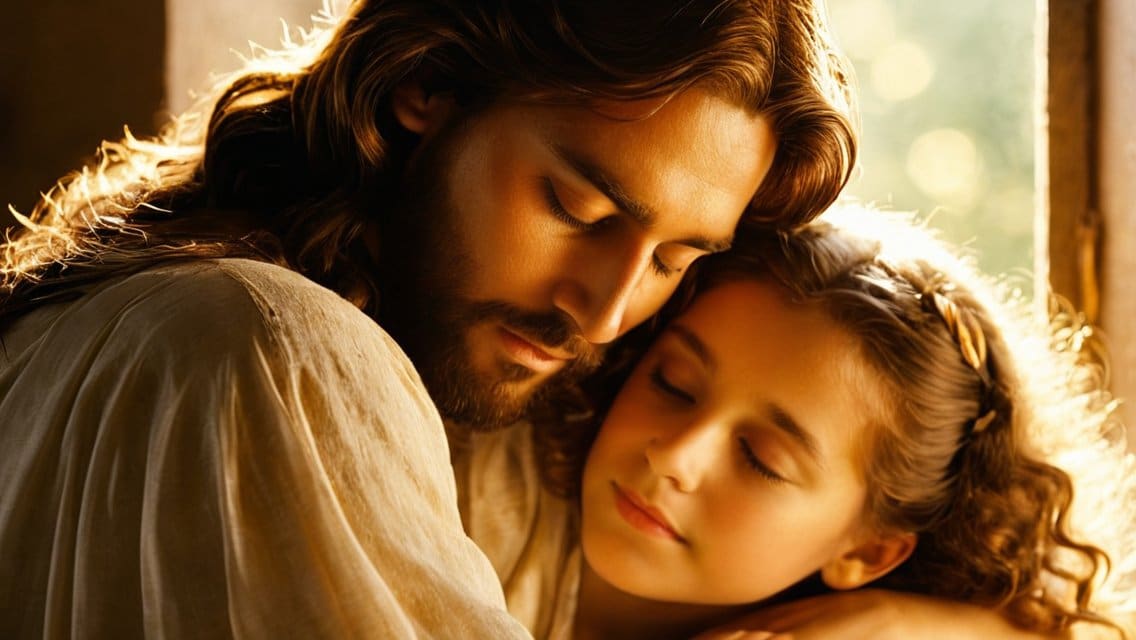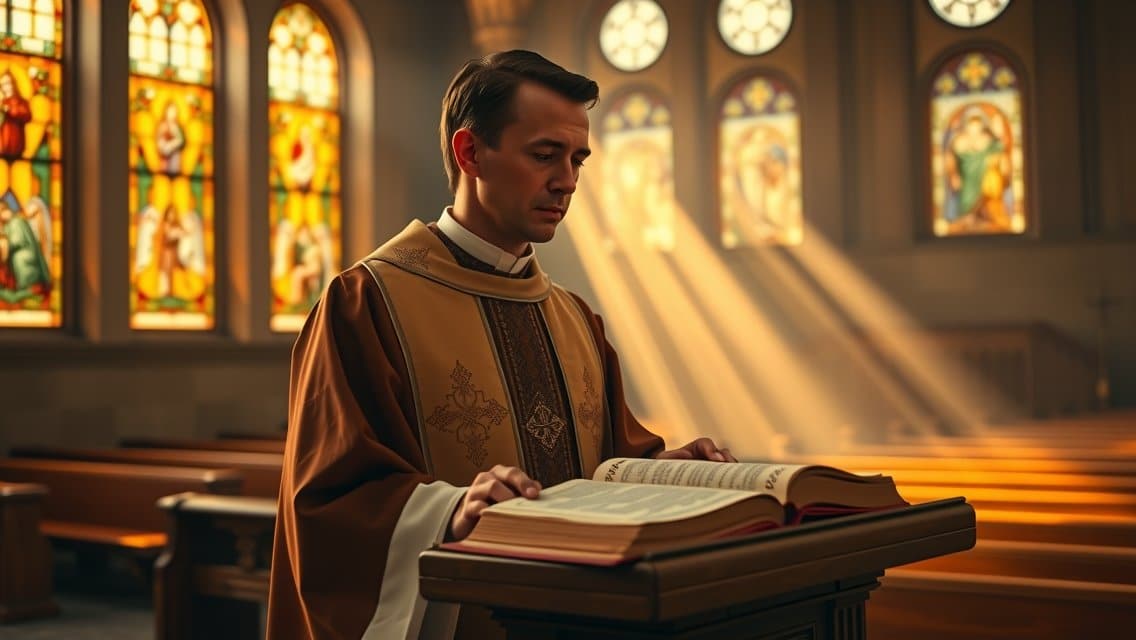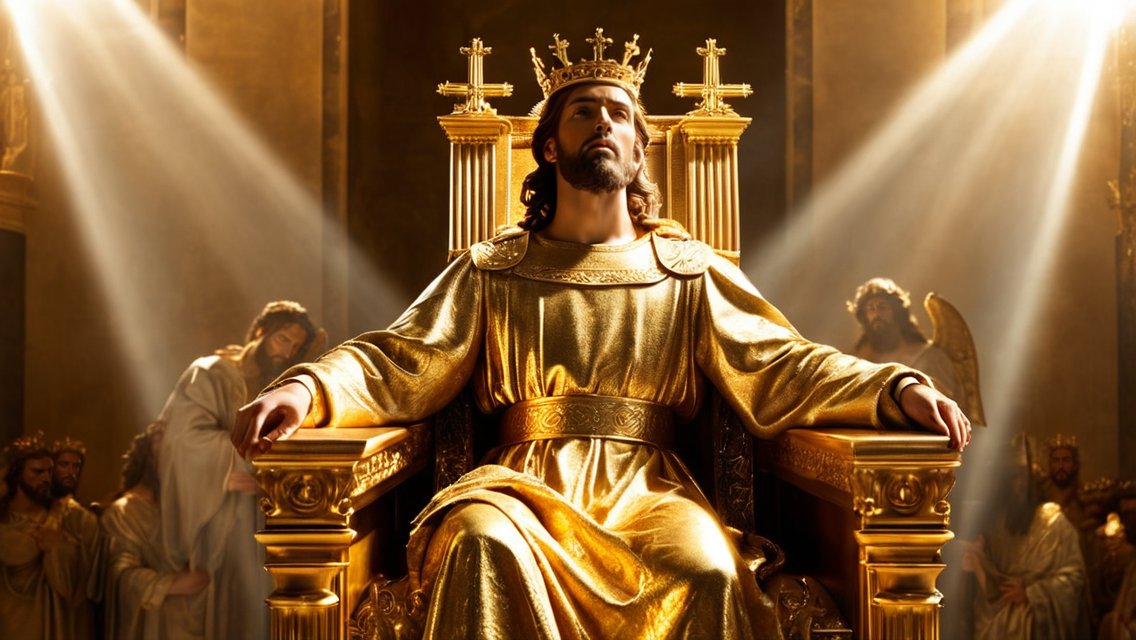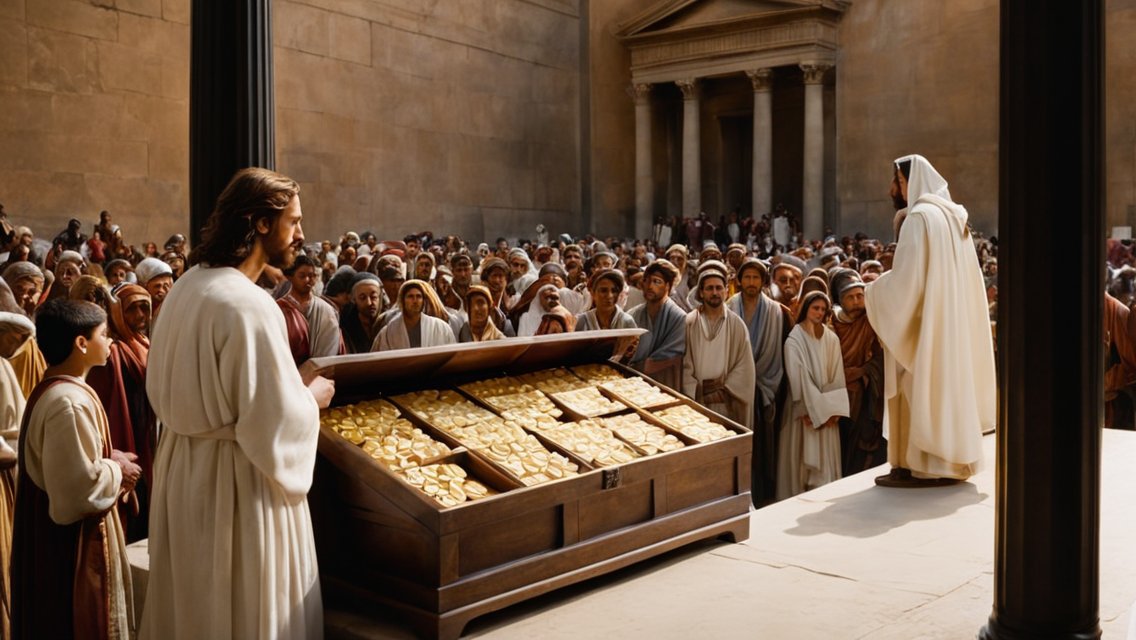Thirteenth Sunday Homily of the Ordinary Time – Year B
Readings: Wis I:l3-l5; 2:23-24, 2 Cor 8:7,9,l3-l5, Mk 5:2l-43
1st Reading – Wisdom 1:13-15; 2:23-24
13 God did not make death, nor does he rejoice in the destruction of the living.
14 For he fashioned all things that they might have being; and the creatures of the world are wholesome, and there is not a destructive drug among them nor any domain of the netherworld on earth,
15 for justice is undying.
23 For God formed man to be imperishable; the image of his own nature he made him.
24 But by the envy of the devil, death entered the world, and they who belong to his company experience it.
Responsorial Psalm – Psalms 30:2, 4, 5-6, 11, 12, 13
R. (2a) I will praise you, Lord, for you have rescued me.
2 I will extol you, O LORD, for you drew me clear
and did not let my enemies rejoice over me.
4 O LORD, you brought me up from the netherworld;
you preserved me from among those going down into the pit.
R. I will praise you, Lord, for you have rescued me.
5 Sing praise to the LORD, you his faithful ones,
and give thanks to his holy name.
6 For his anger lasts but a moment;
a lifetime, his good will.
At nightfall, weeping enters in,
but with the dawn, rejoicing.
R. I will praise you, Lord, for you have rescued me.
11 Hear, O LORD, and have pity on me;
O LORD, be my helper.
12 You changed my mourning into dancing;
13 O LORD, my God, forever will I give you thanks.
R. I will praise you, Lord, for you have rescued me.
2nd Reading – 2 Corinthians 8:7, 9, 13-15
7 Brothers and sisters: As you excel in every respect, in faith, discourse, knowledge, all earnestness, and in the love we have for you, may you excel in this gracious act also.
9 For you know the gracious act of our Lord Jesus Christ, that though he was rich, for your sake he became poor, so that by his poverty you might become rich.
13 Not that others should have relief while you are burdened, but that as a matter of equality
14 your abundance at the present time should supply their needs, so that their abundance may also supply your needs, that there may be equality.
15 As it is written: Whoever had much did not have more, and whoever had little did not have less.
Alleluia – CF. 2 Timothy 1:10
R. Alleluia, alleluia.
10 Our Savior Jesus Christ destroyed death
and brought life to light through the Gospel.
R. Alleluia, alleluia.
Gospel – Mark 5:21-43
21 When Jesus had crossed again in the boat to the other side, a large crowd gathered around him, and he stayed close to the sea.
22 One of the synagogue officials, named Jairus, came forward. Seeing him he fell at his feet
23 and pleaded earnestly with him, saying, “My daughter is at the point of death. Please, come lay your hands on her that she may get well and live.”
24 He went off with him, and a large crowd followed him and pressed upon him.
25 There was a woman afflicted with hemorrhages for twelve years.
26 She had suffered greatly at the hands of many doctors and had spent all that she had. Yet she was not helped but only grew worse.
27 She had heard about Jesus and came up behind him in the crowd and touched his cloak.
28 She said, “If I but touch his clothes, I shall be cured.”
29 Immediately her flow of blood dried up. She felt in her body that she was healed of her affliction.
30 Jesus, aware at once that power had gone out from him, turned around in the crowd and asked, “Who has touched my clothes?”
31 But his disciples said to Jesus, “You see how the crowd is pressing upon you, and yet you ask, ‘Who touched me?’”
32 And he looked around to see who had done it.
33 The woman, realizing what had happened to her, approached in fear and trembling. She fell down before Jesus and told him the whole truth.
34 He said to her, “Daughter, your faith has saved you. Go in peace and be cured of your affliction.”
35 While he was still speaking, people from the synagogue official’s house arrived and said, “Your daughter has died; why trouble the teacher any longer?”
36 Disregarding the message that was reported, Jesus said to the synagogue official, “Do not be afraid; just have faith.”
37 He did not allow anyone to accompany him inside except Peter, James, and John, the brother of James.
38 When they arrived at the house of the synagogue official, he caught sight of a commotion, people weeping and wailing loudly.
39 So he went in and said to them, “Why this commotion and weeping? The child is not dead but asleep.”
40 And they ridiculed him. Then he put them all out. He took along the child’s father and mother and those who were with him and entered the room where the child was.
41 He took the child by the hand and said to her, “Talitha koum,” which means, “Little girl, I say to you, arise!”
42 The girl, a child of twelve, arose immediately and walked around. At that they were utterly astounded.
43 He gave strict orders that no one should know this and said that she should be given something to eat.
21 When Jesus had crossed again in the boat to the other side, a large crowd gathered around him, and he stayed close to the sea.
22 One of the synagogue officials, named Jairus, came forward. Seeing him he fell at his feet
23 and pleaded earnestly with him, saying, “My daughter is at the point of death. Please, come lay your hands on her that she may get well and live.”
24 He went off with him, and a large crowd followed him and pressed upon him.
35B While he was still speaking, people from the synagogue official’s house arrived and said, “Your daughter has died; why trouble the teacher any longer?”
36 Disregarding the message that was reported, Jesus said to the synagogue official, “Do not be afraid; just have faith.”
37 He did not allow anyone to accompany him inside except Peter, James, and John, the brother of James.
38 When they arrived at the house of the synagogue official, he caught sight of a commotion, people weeping and wailing loudly.
39 So he went in and said to them, “Why this commotion and weeping? The child is not dead but asleep.”
40 And they ridiculed him. Then he put them all out. He took along the child’s father and mother and those who were with him and entered the room where the child was.
41 He took the child by the hand and said to her, “Talitha koum,” which means, “Little girl, I say to you, arise!”
42 The girl, a child of twelve, arose immediately and walked around. At that they were utterly astounded.
43 He gave strict orders that no one should know this and said that she should be given something to eat.
Homily
Death is not God’s doing
“Death was not God’s doing, he takes no
pleasure in the. extinction of the living” (Wis)
The untimely death of Jesuit theologian and friend, Peter Arokiadoss (61), during Holy Week 2008 shocked us all. Arokiadoss – Dean of the Faculty of Theology at Pune — had a persistent cough, which was later diagnosed as result of metastases in the bile duct. Within days, Arokiadoss breathed his last. However, on the eve of his death, when asked by a relative why God gave him, a priest, such sickness, Arokiadoss replied: “No, God didn’t give me this sickness. All of us have cancer cells which are under control. Most likely because of my lifestyle or food or sleeping habits, I might’ve given cause for these cells to grow and destroy the good cells. God doesn’t cause sickness, we cause it ourselves.” The opening words of today’s readings declare: “Death was not God’s doing.”
Today’s readings speak about death with Jesus as the victor over death. However, the Book of Wisdom provides the presuppositions for this victory. In sum, God has created the world as essentially good (Wis 1:14; see Gen 1). Humans beings, in particular, were created to be immortal reading reiterates, we’re created “in God’s image” (parallel to Gen 1:26). Death came into the world through “the devil’s envy”.
The death spoken of here is not necessarily biological; but, more specifically, moral and spiritual. In other words, one dies to the extent that one lives an immoral or unspiritual life. Indeed, Christ not only conquers biological death by his resurrection, but he saves us from sin by teaching us how to overcome evil.
The responsorial psalm (30) links the first reading and the gospel: “Lord, you have raised my soul from the dead and restored me to life.” The original context is the ‘death’ that the Israelites experienced in the desecration of the temple by Antiochus Epiphanes and the subsequent restoration of the temple in the time of the Maccabees (164 B.C.). It is thus a psalm of national thanksgiving. Here, however, it celebrates Christ’s victory over death.
In today’s gospel, Mark sandwiches the story of the woman with the hemorrhage in-between two parts of the narrative of the raising of Jairus’s daughter. This insertion can be understood either as: (a) a device to explain Jesus’ late arrival at Jairus’s house – a delay that meant that the little girl had already died; or (b) that the miracle in the insertion explains the other, greater miracle. Interpreted either way, both miracles prefigure Jesus as the one who saves from sickness and death.
The two gospel stories have precedents in two traditions. Jesus’ raising of Jairus’s child is reminiscent of the resuscitation of children by Elijah (l Kings 17: 17-24) and Elisha (2 Kings 4:32-37) and reveals Jesus as the Prophet par excellence. On the other hand, the story of the hemorrhaging woman has traces of the Greek tradition. The woman’s touching Jesus’ garment suggests that she considered him a theios aner – a ‘divine man’-shown by Jesus’ feeling that power had gone out of him when the woman touched him. The central message of both stories is that Jairus and the woman personally encounter their Lord and Saviour with profound faith.
We often feel that God is the cause of all births/deaths. Commenting about Jesus’ life, the great Archbishop Fulton Sheen wrote: “All men come into this world to live, but this man, Jesus, came to die.” Beautiful as these sounds, we must remember that Jesus said, “I have come that you might have life, and have it in abundance” (In 10: 10). indeed, God is a God of Life and “death is not God’s doing. ” It is, rather, we, who cause death in myriad forms – through our sin, selfishness, pride, power play, greed and godlessness. Nonetheless, the Lord of Life bids us touch people and heal them.
Are we ready to hold people’s hands and cry out with the power of the Spirit: “Talitha, kum!” – little girl, sick man, addicted youth, sorrowing widow, frustrated priest, failed student, arise, arise, arise!”? With the wisdom of persons like Fr Arokiadass, let’s cooperate with God to fight death and promote Life.





